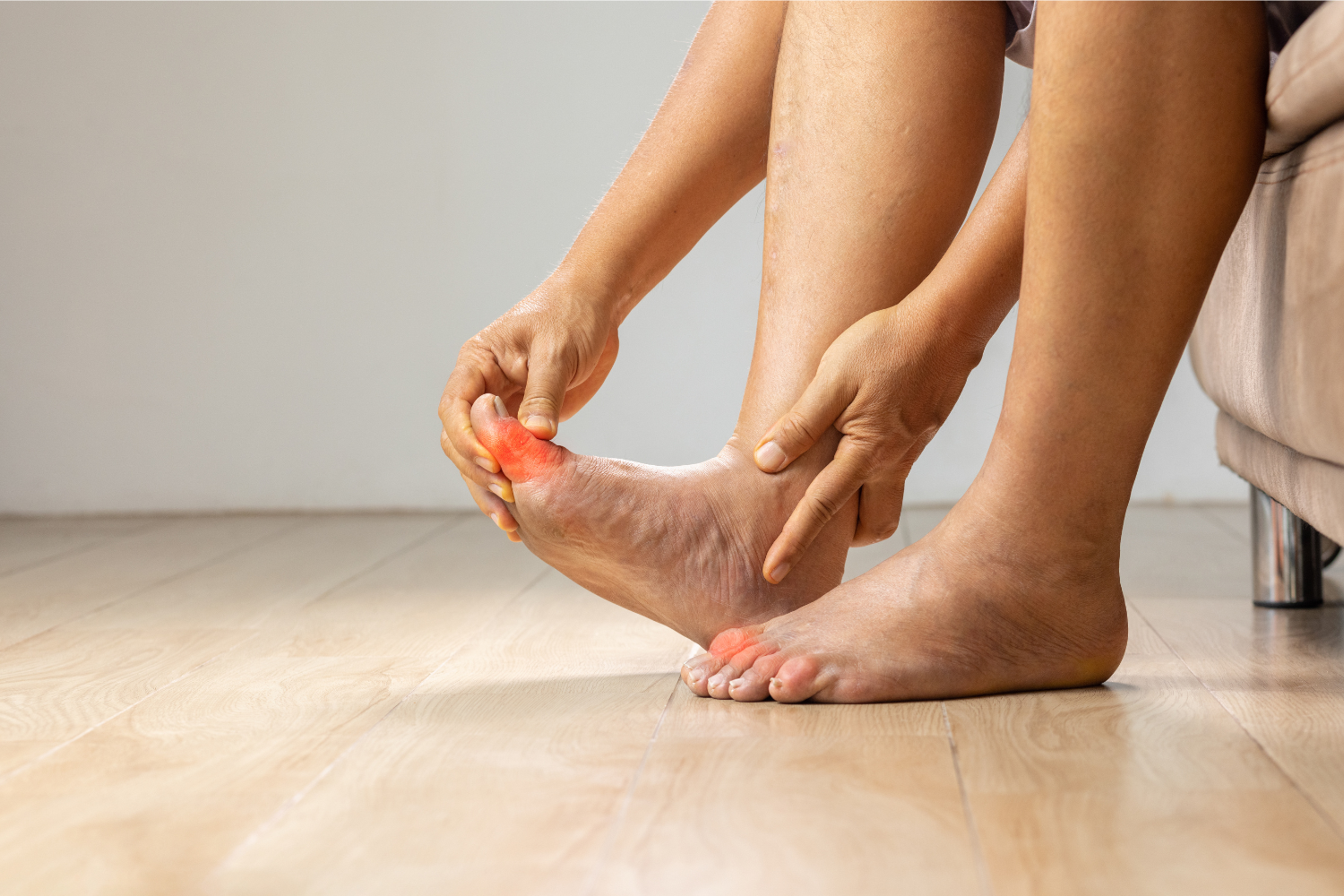Are Gout And Kidney Stones Related?
•Posted on July 31 2023

Your gut flare might be accompanied by an unexpected, painful side effect known as kidney stones.
Both conditions can be excruciating.
But are they related? Can having gout predispose you to kidney stones?
Here is everything you need to know about the two conditions.
Recommended for You:

What is Gout?

Gout is a type of arthritis characterized by redness, severe pain, and swelling around the joints, usually the big toe.
While the conditions can attack anyone, it is common above 30 years and women approaching menopause.
Generally, it is more prevalent in men than women.
Related Post: Is Epsom Salt Helpful for Gout?
A flare attack, commonly known as a gout attack, is sudden, usually getting up in the middle of the night with excruciating pain in your big toe.
These symptoms come and go but can be managed to prevent regular flares.
What Are Kidney Stones?

Also known as renal calculi, kidney stones are hard minerals and salt deposits that form inside the kidneys that are incredibly painful to pass.
The stones might initially be small but eventually increase, sometimes filling up the kidney's inner hollow structure.
They can also move into the ureter, a tube between the bladder and kidney.
Recommended for You:

If lodged here, it interferes with the free urine flow from the kidney, causing severe pain.
However, if it gets to the bladder, it can be eliminated from the body in urine.
What Causes Gout and Kidney Stones

When your body has high levels of uric acid, it can lead to the accumulation of urate crystals in your joint, causing inflammation in the form of a gout attack.
Uric acid is produced when your body breaks down purines, chemical compounds naturally occurring in the body.
Purines are also present in foods such as tuna, trout, sardines, and mussels and beverages such as beer and fructose-sweetened drinks.
Related Post: Magnesium and Diabetes
When there is too much uric acid in your blood for your body to eliminate, it tends to accumulate, forming sharp crystals in a joint and causing severe inflammation, severe pain, and swelling.
There is no specific cause of kidney stones.
However, various factors can significantly increase the risk.
Generally, kidney stones are formed when there are more crystal-forming substances in the urine than the fluid can dilute.
Such substances include oxalate, calcium, and uric acid.
How Can Gout Increase the Risk of Kidney Stone Formation?

So, can gout cause kidney stones?
According to research, gout patients are 60%more likely to suffer from kidney stones.
The major connection between gout and kidney stones is that uric acid crystals can accumulate in the kidneys and eventually turn into kidney stones - big or small.
This can translate to issues such as infection, chronic kidney disease, permanent liver damage, kidney failure, and death if not timely diagnosed and treated.
Common Symptoms and Risk Factors for Kidney Stones

Some kidney stones are smaller than a grain of sand grain, others are as small as a pebble, while a few are the size of a golf ball.
Generally, the larger the stone, the more profound the symptoms.
Some of the symptoms of kidney stones include:
-
Excruciating pain on either side of the lower part of your body
-
Blood in the urine
-
Fever and chills
-
Nausea and vomiting
-
Cloudy and smelly urine
-
A persistent stomach or vague pain
While kidney stones have no specific causes, various factors can increase your risk. Some of the common risk factors include:
-
Dehydration
-
Obesity
-
High levels of sodium or sugar in your diet
-
Metabolic disorders
-
Urinary tract infections
-
Digestive surgeries and diseases
Related Post: How to Improve Your Symptoms of Dehydration from Electrolyte Imbalance
Medical Treatments For Gout And Kidney Stones

Gout medication is usually a combination of reducing purine levels in your diet and symptoms management during an attack.
However, your medical provider can recommend medications such as colchicine, corticosteroids, and NSAIDs like ibuprofen.
The treatment plan for kidney stones will depend on the type of stone, severity, and how long you have experienced the symptom.
Usually, smaller stones will be eliminated via the urine as long as you can bear the pain.
Various medications, such as tamsulosin, have been found to make the stones pass more easily and with less pain.
Your doctor might recommend surgery if the stone does not pass due to size or pain intensity.
Recommended for You:
If you want a natural way to alleviate joint inflammation and pain, try our Magnesium Chloride USP.
Adding this incredible supplement to your routine will help you live and sleep better.
Gout and kidney stones can be excruciating.
If you are looking for a natural way to control your symptoms and live a pain-free life, it all starts with magnesium chloride, which you can shop right here in our store.
Comments
0 Comments
Leave a Comment